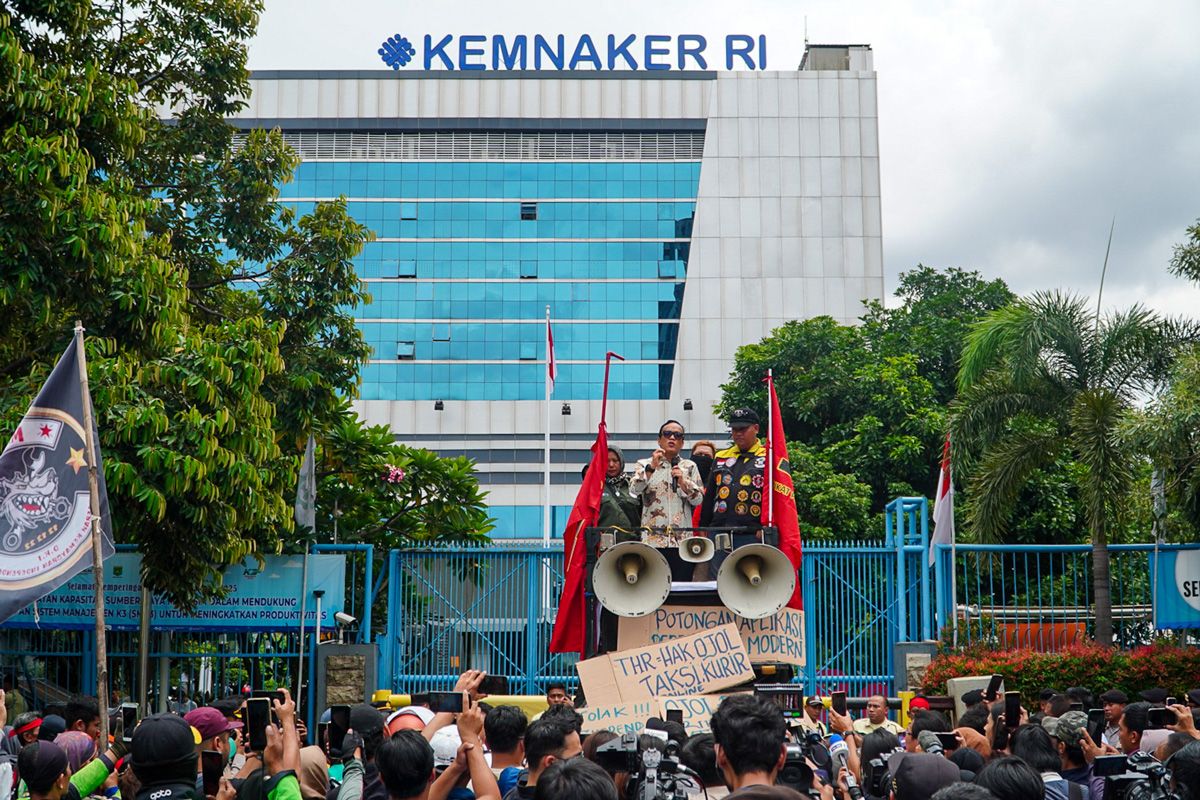Ride-Hailing Platforms Respond to Government’s THR Request for Drivers
The Ministry of Manpower (Kemenaker) has urged ride-hailing companies to provide Tunjangan Hari Raya (THR) in cash to their driver-partners ahead of Idul Fitri. In response, leading platforms Grab, Maxim, and Gojek have shared their perspectives, highlighting their existing support programs while maintaining that their drivers are independent partners rather than employees.
Grab’s Commitment to Driver Welfare
Grab Indonesia's Chief of Public Affairs, Tirza Munusamy, acknowledged the government’s concern for driver welfare and stated that Grab is actively coordinating with stakeholders regarding the THR request. She emphasized that Grab has long been supporting drivers through various initiatives, including:
- GrabBenefits, which offers essential packages, vehicle maintenance discounts, and insurance coverage.
- Dana Santunan, a financial assistance program for drivers’ families during emergencies.
- GrabScholar, a scholarship program for drivers’ children from elementary to higher education levels.
- Incentives and bonuses, especially during major holidays like Idul Fitri.
- Collaboration with BPJS Ketenagakerjaan, ensuring social protection for its driver-partners.
While Grab did not explicitly confirm cash-based THR distribution, it highlighted its ongoing efforts to improve driver welfare.
Maxim’s Focus on Charitable Initiatives
Maxim, through its Public Relations Specialist Yuan Ifdal, stated that the company is currently focusing on charity campaigns to support drivers in various cities. Recognizing the increased needs during Ramadan and Idul Fitri, Maxim is prioritizing aid distribution through:
- Charity campaigns providing assistance to drivers.
- Discounted services and promotions during the holiday season.
Regarding the THR request, Ifdal noted that Maxim respects government decisions but hopes that Kemenaker will consider labor laws objectively. He reiterated that Maxim drivers operate under a partnership model and are not traditional employees, making THR payments a complex issue.
Gojek’s Collaborative Approach
Gojek, represented by GoTo Group’s Chief of Public Policy & Government Relations Ade Mulya, confirmed that the company is engaging in discussions with Kemenaker about the THR matter. Mulya reiterated Gojek’s commitment to supporting driver-partners, particularly through:
- Paket Sembako Bazar Swadaya, an initiative providing essential goods for drivers at lower costs.
- Seasonal incentives and performance-based bonuses.
- Flexible work arrangements, reinforcing the drivers' status as independent partners.
Gojek has yet to announce a decision regarding cash-based THR payments but maintains that it will continue supporting drivers through available resources.
Government’s Stance on THR for Ride-Hailing Drivers
Deputy Minister of Manpower, Immanuel Ebenezer, has emphasized the need for ride-hailing platforms to provide THR in cash rather than in-kind assistance. He stated that the government is considering regulatory measures to enforce this policy, potentially through a ministerial or governmental decree.
While acknowledging the partnership model, Kemenaker is exploring legal frameworks that could redefine drivers' status and ensure they receive benefits similar to traditional employees.
Drivers’ Demands and Recent Protests
The call for monetary THR follows protests by approximately 100 ride-hailing drivers at the Ministry of Manpower’s office. The drivers demand:
- Recognition as permanent employees.
- A full month’s salary as THR, paid 30 days before Idul Fitri.
- Opposition to the partnership model, arguing it allows companies to avoid responsibilities such as THR payments.
These demonstrations highlight the growing tensions between drivers, platforms, and the government over employment status and labor rights.
Conclusion
As discussions continue, the outcome of the THR issue will significantly impact the relationship between ride-hailing platforms and their driver-partners. It may also set a precedent for labor rights within Indonesia’s gig economy. Whether companies will comply with Kemenaker’s request remains uncertain, but the growing demands from drivers signal a shift toward greater protections for gig workers.
Read More






 Tuesday, 27-01-26
Tuesday, 27-01-26







